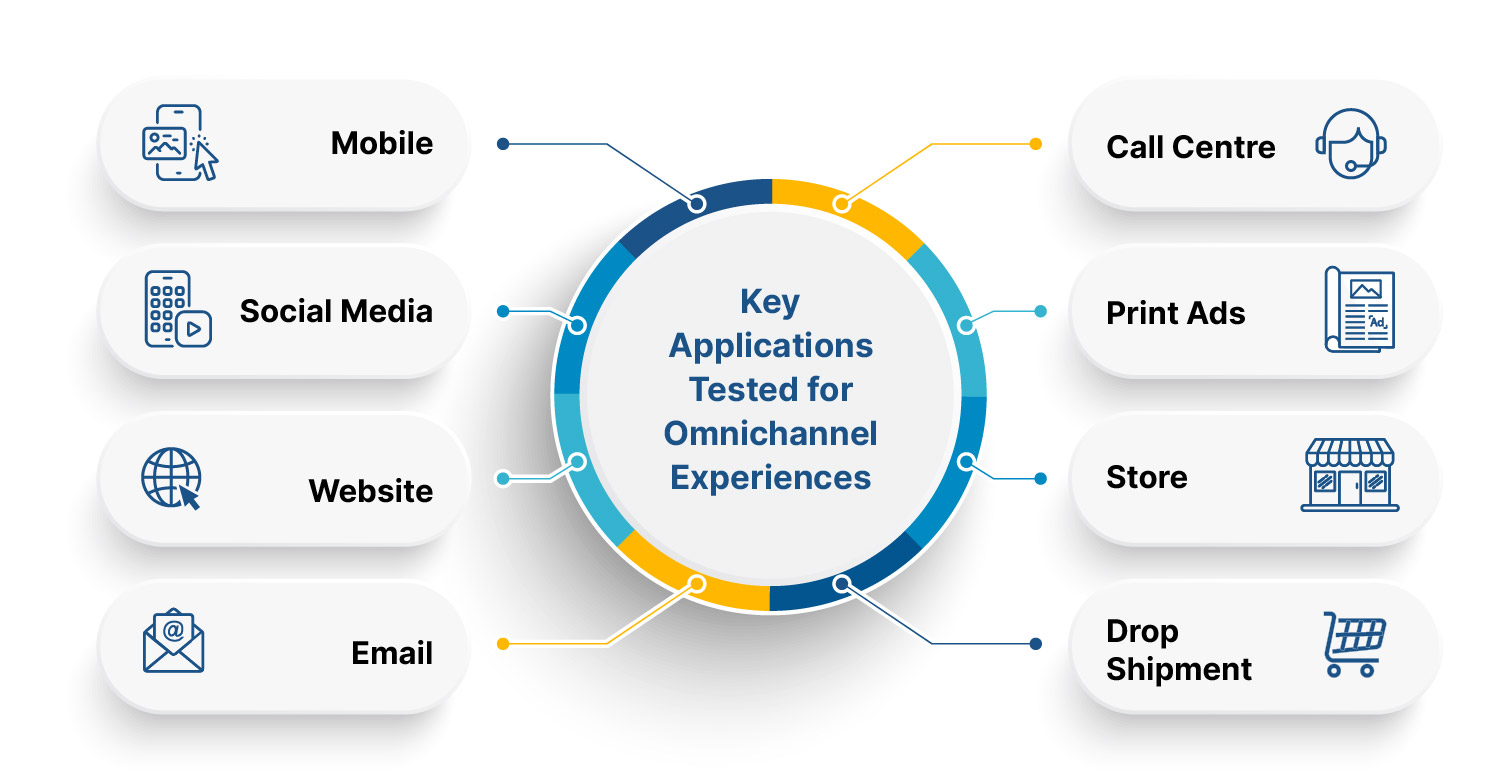Meeting Consumer Demands: Retailers Must Deliver Exceptional Omnichannel Experiences Across Channels and Devices to Thrive.
The retail landscape has undergone a remarkable transformation due to the rise of advanced technologies and the widespread use of the Internet and mobile devices. This shift has intensely impacted consumer purchasing patterns and how international retailers conduct their operations.
The ascent of e-commerce led to the closure of numerous traditional Businesses. However, the tide is starting to turn, ushering in a new era where innovative technologies are reshaping in-person shopping experiences.
As consumers increasingly seek sophisticated shopping experiences, the emphasis has shifted towards providing a seamless customer journey across various retail platforms, including mobile apps, websites, physical stores, television, email, and radio.
Globally, the online retail market is experiencing substantial growth. Retailers worldwide are ready for Digital transformation by embracing an omnichannel approach, thereby reshaping their interactions with customers.
"Key Applications Tested for Omnichannel Experiences"

Mobile Device Testing is crucial for the retail industry. It plays a vital role in maintaining the quality of mobile apps. Ensuring the proper functioning of these apps across a variety of devices requires rigorous quality assurance services. Failing to conduct thorough testing can lead to issues such as crashes or freezes, severely impacting the user experience. The quality assurance process involves rigorous testing to identify and fix functionality bugs, ensuring a smooth user experience on different mobile devices.
Mobile application testing can be broadly classified into two main areas: Mobile device testing and Mobile application testing. Mobile device testing evaluates both hardware and software features, including screens, memory, cameras, and applications. On the other hand, mobile application testing focuses on testing different applications across various mobile devices to ensure consistency and functionality. Effective mobile testing requires strategic planning by the QA team, emphasizing key areas such as:
- Testing with various operating systems (e.g., Android, iOS).
- Testing functionalities on a wide range of handsets.
- Addressing screen size fragmentation.
- Mobile Device Testing on different mobile networks.
Selecting the right quality assurance tools for mobile testing is crucial to meet these critical requirements. When creating a mobile testing strategy, consider factors such as:
- Selection of devices based on stakeholders' or app builders' considerations.
- Utilization of emulators and simulators.
- Types of testing needed, including functional testing, installation testing, performance testing, testing on multiple mobile operating systems, and cross-browser and cross-device testing.
Commonly Used Quality Assurance Testing Tools for Mobile Application Testing
- Katalon: An all-in-one automation testing tool for mobile, web, API, and desktop testing.
- Appium: An open-source tool supporting native, hybrid, and mobile web applications, with scripting language options.
- Espresso: An open-source test automation framework for Android UI Tests developed by Google.
- XCUI Test: An Apple product for iOS device UI testing within Xcode IDE.
- Selendroid: A tool with WebDriver API and Selenium integration, suitable for emulators, actual devices, and Selenium Grid.
- iOS Driver: A tool primarily designed for emulator-based testing on iOS devices.: An open-source tool supporting native, hybrid, and mobile web applications, with scripting language options.
To choose the most suitable tool or framework for writing test scripts, consider factors such as support for various programming languages, mobile platforms, and cross-platform integrations. Appium is highly recommended as it meets all these criteria, making it a top choice for mobile automation testing.
What Sets Appium Mobile Application Testing Tool Apart
The allure of Appium is multifaceted, underpinned by its simplicity, versatility, and robust support for multiple programming languages. Notably, it is a cross-platform marvel, adeptly serving both Android and iOS ecosystems. The seamless integration of preferred programming languages, such as Java, Python, Ruby, or JavaScript, makes Appium an invaluable tool for quality assurance services aimed at achieving impeccable applications.
Key Features Elevating Appium's Mobile Device Testing:
- Cross-Platform Prowess: Appium's innate ability to cater to both Android and iOS domains underscores its versatility. Developers are empowered to craft tests that effortlessly transcend the boundaries of device manufacturers and operating systems, contributing to a comprehensive quality assurance process.
- Linguistic Diversity: The integration of various programming languages within Appium's ambit enhances its appeal. Whether a developer's forte is Java, Python, Ruby, or JavaScript, Appium's inclusivity ensures a seamless and familiar scripting experience.
- Elegance in Design: Appium's adoption of an object-oriented design philosophy renders it both user-friendly and easily maintainable. Navigating the complexities of mobile automation is made more accessible, aiding in swift and effective quality assurance testing tools.
- Symbiotic Automation Frameworks: Appium seamlessly accommodates multiple automation frameworks, with a particular nod to the renowned Selenium WebDriver. This compatibility ensures effortless synergy with existing testing tools, facilitating a cohesive quality assurance app.
- Simplicity in Setup: Appium's installation is an uncomplicated affair. A few steps, including the installation of Node.js, global installation of Appium via npm, and the utilization of Appium Doctor, pave the way for an environment primed for efficient quality assurance testing.
Conclusion:
In conclusion, with our 20+ years of experience as a testing member of Jade Global, it's evident that Mobile testing stands as a crucial asset in our Retail applications. Appium’s ability to simplify complex processes, its multilingual compatibility, and its seamless integration with diverse automation frameworks make it an indispensable tool for us. By harnessing the power of Appium, we are not just meeting but exceeding the expectations of our clients.
It empowers us to create high-quality applications that resonate with the modern user, reflecting our commitment to excellence in every project we undertake. Embracing Appium means embracing innovation, efficiency, and ultimately, the delivery of exceptional solutions to our clients.














